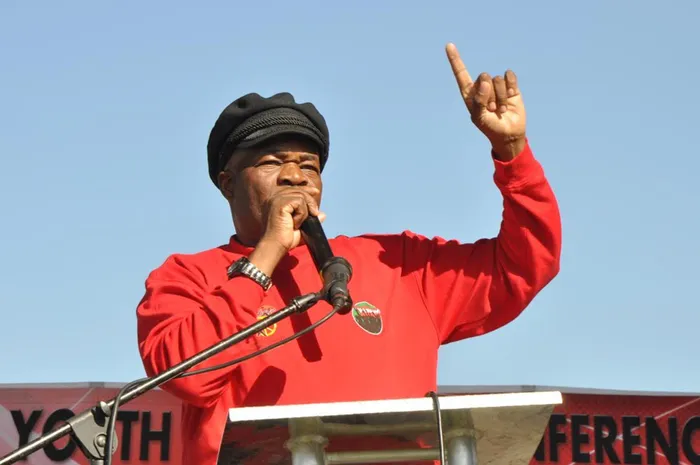Cosatu: Employment Equity necessary to correct centuries of discrimination
UNIONS

Political denialists who prefer a state that does nothing to address the injustices of society, past and present, need look no further than neighbouring Zimbabwe as to the real dangers and costs of such procrastination. This is a mistake that we would be wise not to repeat in South Africa.
Image: Yiğit KARAALİOĞLU/Pexels.com
Employment Equity is a necessary path to correct three and a half centuries of the most brutal forms of discrimination.
This is precisely why the drafters, led by the African National Congress, of South Africa’s Constitution, one of the most progressive and internationally respected, stipulated that government is obliged to utilise its powers to address the legacies of the past and the inequalities of today.
Any government which fails to live up to these ideals, can and has been taken to court.
Political denialists who prefer a state that does nothing to address the injustices of society, past and present, need look no further than neighbouring Zimbabwe as to the real dangers and costs of such procrastination. This is a mistake that we would be wise not to repeat in South Africa.
Democracies are noisy by nature, unfortunately in the desperation for scrounging up votes, some political parties choose to beat the drums of sensationalism at the expense of facts and common sense.
Perhaps the most ludicrous claim has been that White, Coloured and Indian workers will lose their jobs and be locked out of any future employment. In a normal time, when sobriety was not in short supply in our body politic, or flat earth lunatics were not running amok on social media, it would be sufficient to ignore such nonsensical claims.
However, in the era of social media with no fact checks in place, such hysterical claims do real damage to social cohesion.
The Democratic Alliance has occupied headlines this week with its ill-considered court challenge on the Employment Equity Act’s constitutionality. We are confident that the Act which is nearly as old as our hard-won democracy, will once again withstand any ill-tempered court challenge.
Cosatu is confident that the DA’s legal challenge, launched at the height of its 2024 elections campaign, will be dismissed as the election gimmick it is.
It is important to take a step back and unpack what Employment Equity is and the recent amendments to the Act which have excited the social media warriors.
Employment Equity is a call to all employers, public and private, to ensure that all employees are supported and able to reach their full potential, free of any unfair barriers, in particular based upon their race, gender or disability.
Employment Equity includes all South Africans; Black, White, Coloured and Indian; male and female, with and without disabilities. None are excluded.
It is a nudge to all employers to work towards reflecting South Africa’s demographic diversity at their workplaces. Nothing that should offend those who embrace the progressive declaration of the Freedom Charter that South Africa belongs to all who live in it, Black and White.
For the first thirty years of democracy, the Employment Equity Act largely adopted a voluntary approach of speaking to employers’ better angels and nudging them to work towards achieving diversity, and of course to prohibit any instances of unfair discrimination.
Unfortunately, as can be seen across the large swaths of the private sector, many areas and professions remain untouched by the democratic transition.
A cursory glance of the Commission for Employment Equity’s reports reveal how three decades after 1994, over 60% of senior posts in the private sector are held by Whites and mostly male, yet Whites constitute just over 7% of society. On the other spectrum, virtually all low paying jobs are held by African and Coloured, and mostly women compatriots.
We will never overcome our infamous status as the world’s most unequal society if one’s race or gender continues to predetermine our career path in life.
The 2023 amendments to the Act seek to adjust our path and put in place measures to nudge those employers who have made little or no progress on this journey.
Hence the Minister may set targets for sectors or professions. Once one moves past headlines and examines the targets, it is clear that these are relatively modest and seek to nudge employers to make progress. On average, the targets would see a 10% improvement on existing employment equity data, hardly stuff that should give employers palpitations.
Nowhere in the targets, Regulations or Act, does it provide for any employee to lose their job. In fact, that would fall foul of a variety of our labour laws and Constitution. None of the targets amounts to 100% of the workforce. The targets are set over 5 years and where employers genuinely cannot meet them, exemptions are provided for.
The fact that no one has taken an employer or government to court alleging that they have been fired because of the Act, is evidence of the balderdash of their claims of persecution and discrimination.
The amendments also address an important matter correctly necessitated by a court case requiring the recognition of regional demographic diversity and enabling employers to take them into account.
This is critical as the demographics of Limpopo are the polar opposite of those of the Western Cape for example, and workplaces need to accomodate that reality. One would have thought that this well-considered and important gesture towards inclusivity and non-racialism would have been applauded by the Act’s opponents!
The amendments recognise the spectrum of disabilities, an important step forward towards improving the appallingly low levels of employment for persons with disabilities.
Lastly the amendments require employers doing business with the state to have compliance certificates for the Employment Equity and National Minimum Wage Acts, an important way to incentivise compliance with good labour practices and disincentivise those who prefer to undermine our labour laws.
Employment Equity is a sensitive matter for all workers, it is one that must be handled with care and not exploited for social media likes or votes at the ballot box. It is about addressing the discrimination that millions continue to face because of their race, gender and disability.
It is about ensuring all South Africans are able to reach their full career and earning potential and thus helping to unlock economic growth.
Solly Phetoe is the General Secretary of Cosatu.

Solly Phetoe.
Image: File
BUSINESS REPORT